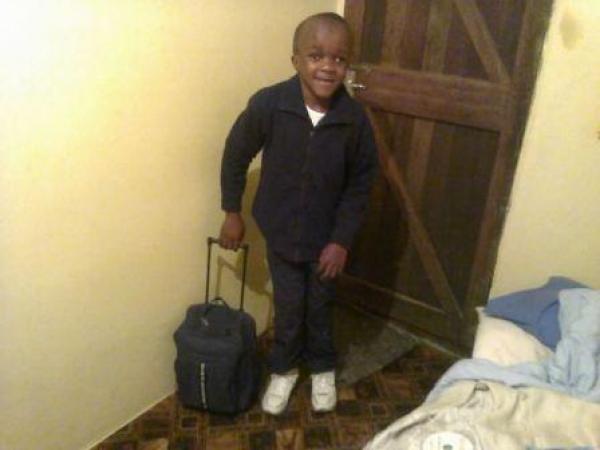Daily grind of a Zimbabwean mother

Nancy Muzembe, originally from Zimbabwe, struggles against all the odds to give her son a good education.
In 2002, her baby boy, Prince, the youngest of her four children, fell sick at four months with a condition known as hydrocephalus (build-up of fluid on the brain). At the time, the health system in Zimbabwe was collapsing. Prince, who is now 12, went untreated because the family could not afford a private hospital.
Muzembe, who is 49 years old, came to South Africa in 2010 seeking asylum. Her asylum application is reviewed every few months, with the next review due on 26 November 2013.
Upon arriving, she at once took Prince, the youngest of her four children, to the Red Cross War Memorial Children’s Hospital. He was put on a waiting list and finally got treatment two years later when he was 10 years old. Doctors inserted a shunt to drain excess fluid from his head. He will use a shunt all his life. His legs were also operated on.
Muzembe says it has made a big difference, but Prince needs special care; if he gets too hot or cold he has fits.
A doctor at the hospital recommended Paarl Primary as a school for special needs with well-trained staff and doctors. Muzembe opted to put Prince in boarding, because she would need to be out looking for an income and it would be better for him during Cape Town’s winter season.
The school uniform is only available from a shop in the Tyger Valley Shopping Centre and Muzembe says at R2,800 for one set it is expensive. School fees are R650 per month. The boarding fee is R1,000 per month. Every month, she needs R200 for transport to fetch and return the child back to school. The school used to charge her R40 per week for laundry, but she requested she be allowed to take the clothes home and wash them herself.
Prince loves going back to school. He can now write, read and speak English fluently. He can also use computers.
But Muzembe struggles to keep employment for long, since her son frequently falls sick and she has to care for him. Earlier this year, she worked as a childminder for the boarding master, but Prince fell ill.
“I stayed away from work because Prince was hospitalised at Red Cross for two days,” she said. “Staying away inconvenienced my employer as well; she had to make new arrangements for the baby’s care while she was also at work.”
Muzembe started to buy and sell clothes in Masiphumelele in Fish Hoek. She applied for an informal trading licence at the City of Cape Town. For now, she is out of business, and she does not yet have the school fees for Prince when schools open in January next year. But Muzembe says she is standing firm.
This story has been fact checked by GroundUp.

This article is licensed under a Creative Commons Attribution-NoDerivatives 4.0 International License.


